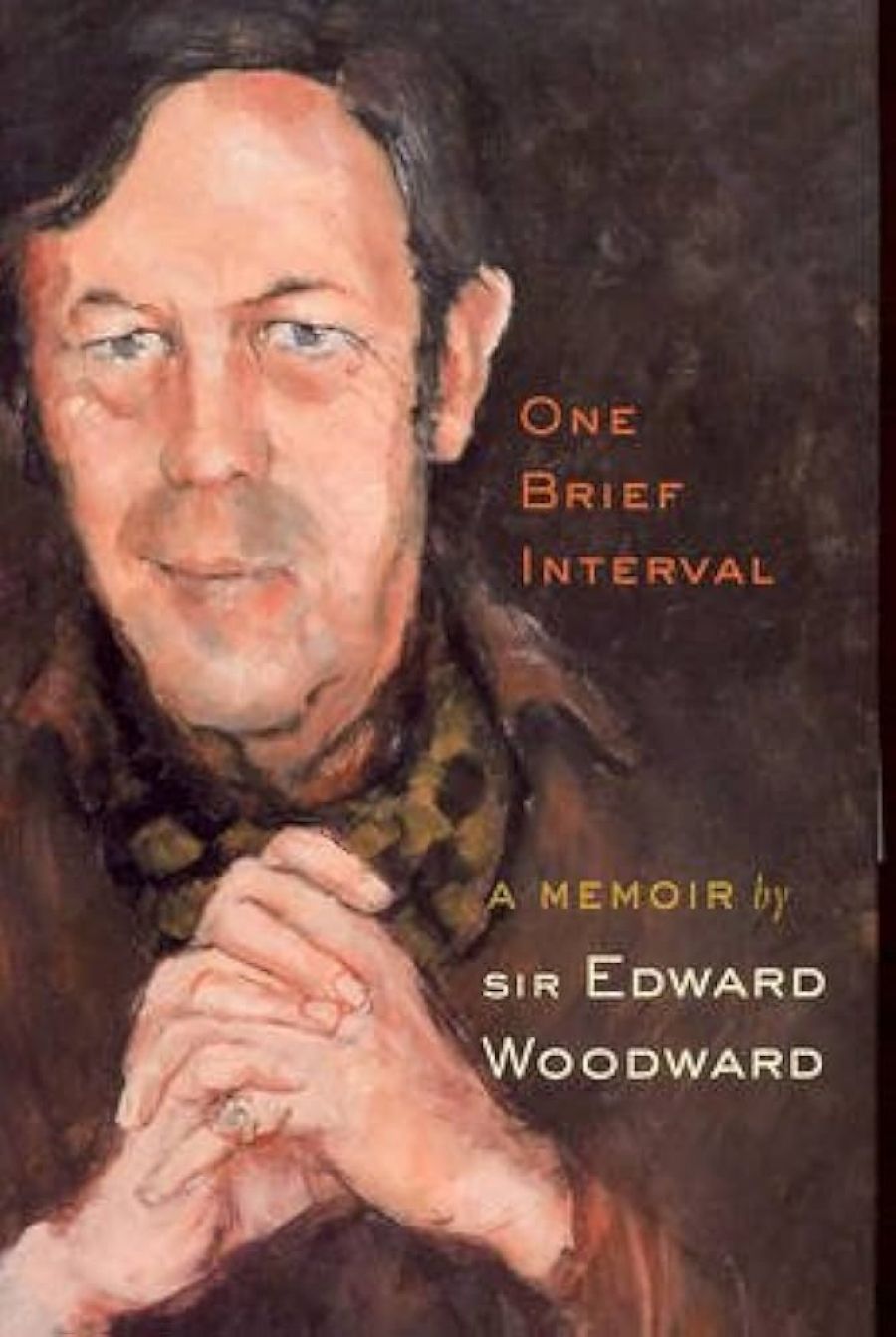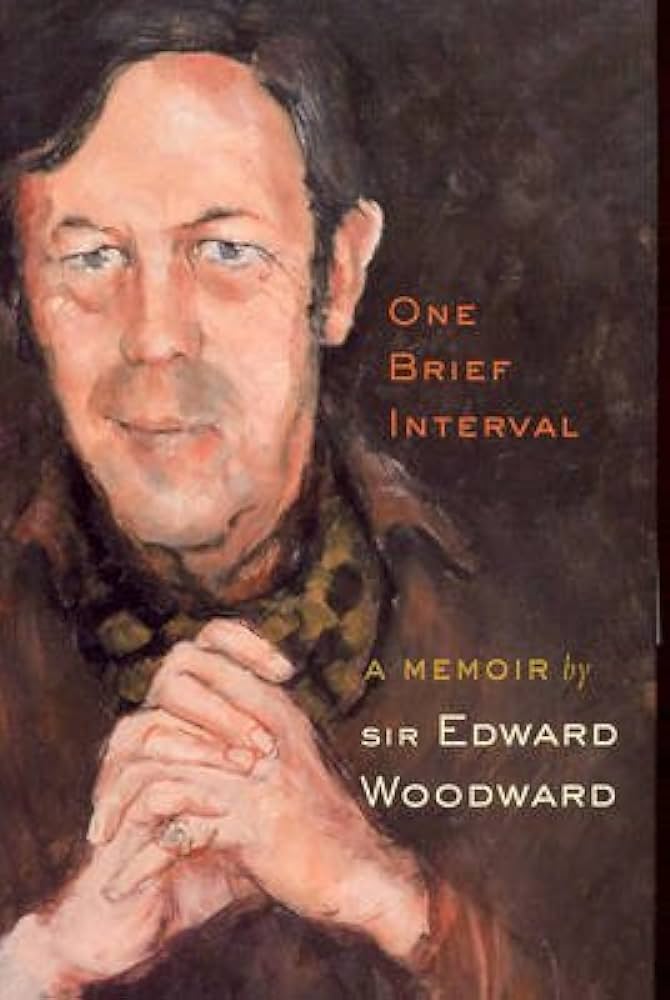
- Free Article: No
- Contents Category: Memoir
- Review Article: Yes
- Article Title: A formal life
- Online Only: No
- Custom Highlight Text:
This is a book for people interested in the law, politics and the institutions of public life, areas in which Sir Edward Woodward was actively involved for the last half century. It is a record of achievement and provides an interesting and clear-eyed perspective on many of the important issues of that period.
- Book 1 Title: One Brief Interval
- Book 1 Subtitle: A memoir
- Book 1 Biblio: Miegunyah, $49.95 hb, 310 pp
- Book 1 Cover Small (400 x 600):

- Book 1 Cover (800 x 1200):

First and foremost a lawyer, the author supplemented his legal knowledge with a lot of common sense. From his early days, he believed that his future lay in ‘politics and the bar’. His life didn’t turn out quite like that, but both these interests dominated his career. He became a prominent Queen’s Counsel, a judge, a key figure in seventeen Royal Commissions and Inquiries, the director-general of ASIO and the chancellor of Melbourne University. And there was more than that. He had opportunities to do other things: he might have become a Liberal member of federal parliament; in 1979 he was offered the position of secretary of the Department of Defence (he declined); in 1991 he considered and, largely for reasons of propriety, rejected an offer to be-come governor of Victoria.
As a barrister, Woodward had his first experience of Aboriginal issues in the Northern Territory Cattle Industry case, where the union had sought (foolishly, as Woodward points out) wage equality for Aboriginal stockmen. The union won the case, and most of the Aboriginal stockmen lost their jobs. Woodward observed all this from the relatively neutral position of counsel for the Commonwealth Government. He also appeared for the Commonwealth in various national wages cases and developed a quaint specialty as a prosecutor of alleged obscenity. In the late 1960s he represented the Aboriginal communities of the Gove Peninsula in a land rights claim against the mining company Nabalco. It was a case of historical importance – the first time the expression ‘Aboriginal land rights’ had been used in Australia – and a milestone in Woodward’s career. The court decided that Aboriginal law relating to land could be recognised within the principles of European law. In 1973 Gough Whitlam appointed Woodward to conduct a Royal Commission into Northern Territory land rights generally. As intended, the notion of land rights was extended to the whole of the Territory and later, in principle, to the states, a principle that was sadly compromised by politics.
Early in 1976 Woodward became director-general of ASIO (having been selected by Whitlam, prior to the Dismissal). ASIO was in poor shape and the new director-general set about changing its structure, its recruitment policies and its antiquated work practices, resulting in a much-needed boost in morale. Being the public face of ASIO and accounting to government were difficult roles. Prime Minister Malcolm Fraser sometimes asked Woodward to do things he was not prepared to do; and it was against Fraser’s wishes that he insisted on his right to brief Bill Hayden, as leader of the Opposition.
In 1976 there was an atmosphere of suspicion and distrust in Canberra following the Dismissal. For a while people, including this reviewer, tended to believe anything. I once tackled the director-general in Queen’s Hall and asked him to stop ASIO tapping my phone. ‘Not that it bothers me much,’ I said with bravado. ‘I just tell my caller not to worry about ASIO, that they are a bunch of sexual deviants and incompetents who couldn’t hold down a real job. They won’t be able to understand what we are talking about.’ Woodward looked at me without a smile and said quietly, ‘Yes, I know you say that’. At the time it seemed chilling. Finally, I am reassured by this memoir.
Woodward became chancellor of Melbourne University in 1990. A chancellor requires a capacity for suffering; presiding over graduation ceremonies, hosting university social functions, and chairing endless committees is not always great fun. A chancellor, however, can lend prestige to a university and in turn gain prestige from the position. For eleven years, Woodward managed the traffic both ways with good effect.
In 1965 when he was appointed to conduct an enquiry into the stevedoring industry, a press release from the Waterside Workers’ Federation observed of Woodward:
He is the son of Lt. Gen. Wilson, Governor of New South Wales, military family and flag-wavers from way back, public school education and then university – has been an active Liberal since university days – a history of hostility to Labor and the working class … his only work has been to untie the red tape on the briefs that Bolte and Liberals hand him.
Woodward, who seems to have a wry sense of humour, described this press release as ‘less than diplomatic’, and indeed it is a reminder of more robust times. He certainly emerges from this memoir as a conservative man, who no doubt enjoys his establishment titles, but a conservative for whom probity, intellectual honesty and contribution to public life are among the most important values. He believed that ‘a life mainly devoted to self-gratification’ has no point. Even at Melbourne Grammar, he was not of ‘the Toorak mob’, and he seems to have enjoyed a lifelong habit of thinking things through for himself. This attribute makes his comments on issues and personalities encountered in his public life all the more interesting.
He and his wife have enjoyed a long and mutually supportive relationship dating back to their student days. He regards his family of seven children as his ‘legacy’. For him there is nothing else. He’s thought about religion, too, has come to regard himself as an atheist and lucidly explains why in the closing chapter of his memoir. This seems an honest and courageous thing to do in a memoir of this kind and to see it as a record of ‘One Brief Interval’ in eternity.


Comments powered by CComment